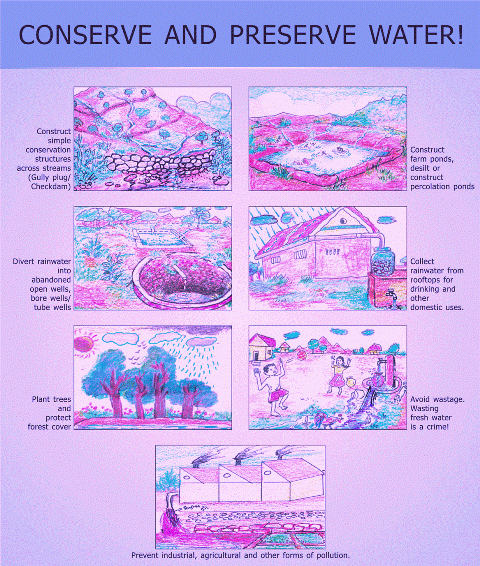Along India's southern coasts are several places with an intriguing name. That name is Pondicherry. Its origin is from the Tamil language. Putu (new) Ceri (village). (Pronunciation: pon-di-cher-E)
Pondicherry consists of four enclaves of former French India. Today they are part of a small Union Territory of India, and many maps carry the name Pondicherry under each of them. The area of all four enclaves is approximately 190 square miles (73 km2). The capital is Pondicherry Town located in the state of Tamil Nadu. Population is approximately 1 million. The only unifying factor for the enclaves is the Hindu religion. Industries include agriculture, food processing, textiles, handicrafts and tourism. The enclaves were given to India in 1956, but formal acceptance took until 1962. Today, they are governed by the Central Government of India, though it has been suggested that they become parts of the states which surround them.
Pondicherry Town, nicknamed "Pondy", is the former chief settlement of France in India. Karichal is also on the Coromandel Coast of the Bay of Bengal as is Yanaon, an enclave in Andhra Pradesh. Mahe is located in the Malabar Coast of the Arabian Sea. All are highly regarded resort areas today. Until 1949 Chandannaga, a town near Calcutta, was under French control as well. It is now part of the state of West Bengal.
Pondicherry was founded in 1675 as a trade center. The land was purchased from a local ruler. Legend associates Pondy with sage Agastya who came here from the north, and was once called Vedapuri and the seat of Vedic culture. A nearby archeological site at Arikamedu suggests trade between India and Rome and Greece existed in the period of 100 BCE and 100 CE. Today, Pondicherry remains a seaport, seaside resort and tourist center. However, the main focus is the Ashram (religious retreat) of Sri Aurobindo and Auroville. The Ashram was founded in 1926. Sri Aurobindo was a "Great seer, poet and prophet of the20th Century", who used yoga as a means to peace, tranquility, and insight. He is also credited with assisting in inspiring India's independence. Nearby Auroville was founded in 1968 as a place where all races, religions, and cultures may live in peace and harmony. Guest houses at the Ashram encourage visitors to stay at this interactive place of enlightenment.
The French influence continues to this day. Examples include the oval shaped city center with right-angled street intersections, and the boulevard that encircles the main part of town, architecture of the 18th and 19th century Christian churches and public buildings, a promenade along the beach, and even a statue of Joan of Arc. Viewed from the sea, the skyline is typical of that of a French Mediterranean village. The hallmark of Pondicherry is the flat-topped cylindrical red kepi -- a hat worn by the police.
Tourism is being developed and encouraged. Various attractions include the religious sites of the Ashram of Aurobindo and Auroville, the beach and promenade, and even a statue of Mahatma Ghandi.
The climate is tropical - which means hot and humid. The monsoon is active in this part of India from October through December. The southwest monsoon that deluges western India may produce only a few scattered showers here. The warmest part of the year is the April-August period when temperature may hit 43°C! Average temperatures are much lower with 24°C typical of January and 30°C for June.
Investors and entrepreneurs are being encouraged with the need for additional hotel space, theme parks, golf courses, new industrial parks and improved transportation services. Incentives in the form of low interest loans and tax benefits are part of the plan.
The French have a saying: "The more things change the more they stay the same" - and this could be somewhat the case for Pondicherry!
Pondicherry consists of four enclaves of former French India. Today they are part of a small Union Territory of India, and many maps carry the name Pondicherry under each of them. The area of all four enclaves is approximately 190 square miles (73 km2). The capital is Pondicherry Town located in the state of Tamil Nadu. Population is approximately 1 million. The only unifying factor for the enclaves is the Hindu religion. Industries include agriculture, food processing, textiles, handicrafts and tourism. The enclaves were given to India in 1956, but formal acceptance took until 1962. Today, they are governed by the Central Government of India, though it has been suggested that they become parts of the states which surround them.
Pondicherry Town, nicknamed "Pondy", is the former chief settlement of France in India. Karichal is also on the Coromandel Coast of the Bay of Bengal as is Yanaon, an enclave in Andhra Pradesh. Mahe is located in the Malabar Coast of the Arabian Sea. All are highly regarded resort areas today. Until 1949 Chandannaga, a town near Calcutta, was under French control as well. It is now part of the state of West Bengal.
Pondicherry was founded in 1675 as a trade center. The land was purchased from a local ruler. Legend associates Pondy with sage Agastya who came here from the north, and was once called Vedapuri and the seat of Vedic culture. A nearby archeological site at Arikamedu suggests trade between India and Rome and Greece existed in the period of 100 BCE and 100 CE. Today, Pondicherry remains a seaport, seaside resort and tourist center. However, the main focus is the Ashram (religious retreat) of Sri Aurobindo and Auroville. The Ashram was founded in 1926. Sri Aurobindo was a "Great seer, poet and prophet of the20th Century", who used yoga as a means to peace, tranquility, and insight. He is also credited with assisting in inspiring India's independence. Nearby Auroville was founded in 1968 as a place where all races, religions, and cultures may live in peace and harmony. Guest houses at the Ashram encourage visitors to stay at this interactive place of enlightenment.
The French influence continues to this day. Examples include the oval shaped city center with right-angled street intersections, and the boulevard that encircles the main part of town, architecture of the 18th and 19th century Christian churches and public buildings, a promenade along the beach, and even a statue of Joan of Arc. Viewed from the sea, the skyline is typical of that of a French Mediterranean village. The hallmark of Pondicherry is the flat-topped cylindrical red kepi -- a hat worn by the police.
Tourism is being developed and encouraged. Various attractions include the religious sites of the Ashram of Aurobindo and Auroville, the beach and promenade, and even a statue of Mahatma Ghandi.
The climate is tropical - which means hot and humid. The monsoon is active in this part of India from October through December. The southwest monsoon that deluges western India may produce only a few scattered showers here. The warmest part of the year is the April-August period when temperature may hit 43°C! Average temperatures are much lower with 24°C typical of January and 30°C for June.
Investors and entrepreneurs are being encouraged with the need for additional hotel space, theme parks, golf courses, new industrial parks and improved transportation services. Incentives in the form of low interest loans and tax benefits are part of the plan.
The French have a saying: "The more things change the more they stay the same" - and this could be somewhat the case for Pondicherry!







No comments:
Post a Comment